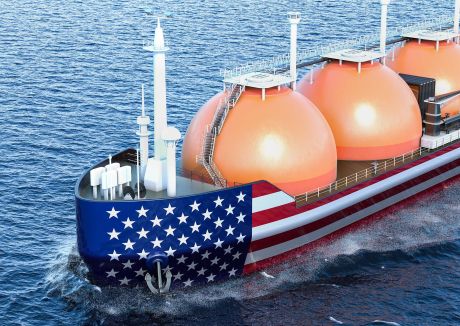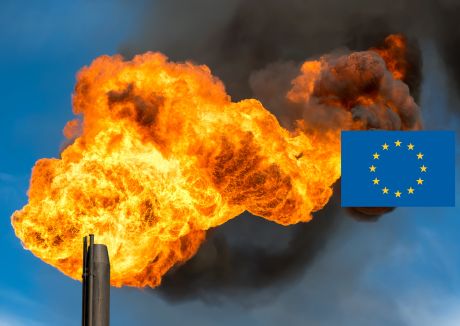The first quarter of 2020 has turned out as another watershed for the LNG industry, and particularly for those who in the early 2010s saw new business and value opportunity from US supply propositions.
Long term SPAS: taking the rough with the smooth
Surprisingly to some, part of the challenge has come as a consequence of the timescales attaching to LNG contractual commitments, which have always underpinned new liquefaction development. Liquefaction projects are amongst the most capital intensive of any industry, requiring long economic lifetimes and strong offtake revenue assurance to support their financing. For the offtaker this represents a long-term commitment and requires a business capacity to support these commitments through business cycles – taking the rough with the smooth.
Liberalisation of demand-side utilities’ markets has resulted in these entities’ businesses being threatened from being no longer able to just pass through to their customers whatever purchase costs they incurred. In addition, the customers of remaining monopolies have become much better informed and less willing to tolerate high prices. The capacity of these players to sustain and manage their obligations is being significantly challenged through the present stress-test environment. The willingness or ability of end demand-side players to sustain short term downside is now being tested to an unprecedented extent.
As the Dogs Trust might say, an LNG commitment is for life, not just for Christmas.
As supply-side scarcity has given way to a supply glut, and perceptions of future value have drained from the market, these buyers are coming to terms with the speed at which a perceived “asset” of access to “cheap” US liquefied gas has become a liability.
The value and risk of flexibility
The FOB offering of US liquefaction also tantalised offtakers with complete cargo destination freedom, providing the prospect of flexibility which had up to then been reserved largely to portfolio players. New shipping capacity commitments were entered into, with the intention of taking a slice of the value of spreads with Asian pricing that had been seen in the early part of the decade. Buyers also overcommitted on volumes, anticipating a scarcity factor.
2020 offers a budget shattering result for many from such management decisions:
- The “optionality” of taking cargos from US liquefaction projects is now visible in the shut-ins from cargo cancellations, with little or none of the ca. $9 billion of fixed capacity charges on 60 mtpa of US liquefaction likely to be covered by gross margin from sales
- Shipping capacity already contracted and paid for is finding a new role as floating storage, either for LNG stranded by port FMs or in anticipation of future deals offering better margins
- Constructs to contract out some of these FOB volumes, on a short / medium term quasi back-to-back basis through DES sell-on, are now proving to be fertile ground for dispute by secondary buyers, leaving project offtakers with even greater exposure.
Moreover, novice FOB buyers are now recognising the harsh reality of the much weaker Force Majeure protections that attach to their agreements, compared to their well understood and potentially better protected DES positions. This is hard recognition that there is not only potential value, but also added risk, attached to FOB flexibility.
Readiness to deal with the exceptional
It is hard to imagine anyone writing new fire regulations when the house is already ablaze! However the most recent interruptions from the COVID 19 induced economic collapse, exacerbating an already difficult trade flow, have been exceptionally challenging to those organisations that have been working to bed-in new participations in the LNG chain. This includes new offtake arrangements with US projects, first time management of own or chartered shipping capacity, those quasi back-to-back FOB to DES arrangements, and in some cases, US gas supply and transportation.
Gas Strategies, having worked with multiple liquefaction projects in the development and implementation of their commercial operations processes, understands the rigour and readiness testing which has gone into these projects. We have also seen at first-hand the challenge of achieving aligned day to day operation across portfolios that have evolved incrementally. Even in the short term, organisations are likely to still achieve some element of improvement in their position if they focus on three things:
- Establishing challenge processes into how individual contracts are being managed; seeking to open up understanding of the assumptions that are being made,
- Creating transparency and shared understanding across contract management teams to achieve this on a portfolio basis; overcoming the “siloed” practices that will have inevitably become rooted over time;
- Challenging managers to now step into the detail of contracts, their operation and optimisation, to support this pursuit of value and opportunity
When the smoke clears, those that remain standing will have valuable lessons to build on as they establish and create ongoing assurance regimes of readiness to expect the unexpected.
We can see that it is not only the US LNG offtakers that will have learned some hard lessons. The weaknesses of the delegated and siloed understanding and management of contracts within many organisations has already come to the fore for many more established LNG players.
***
If you would like more information about how Gas Strategies can help your business with Consulting services across the value chain or provide industry insight with regular news, features and analysis through Information Services or help with people development through Training Services, please contact us directly.








